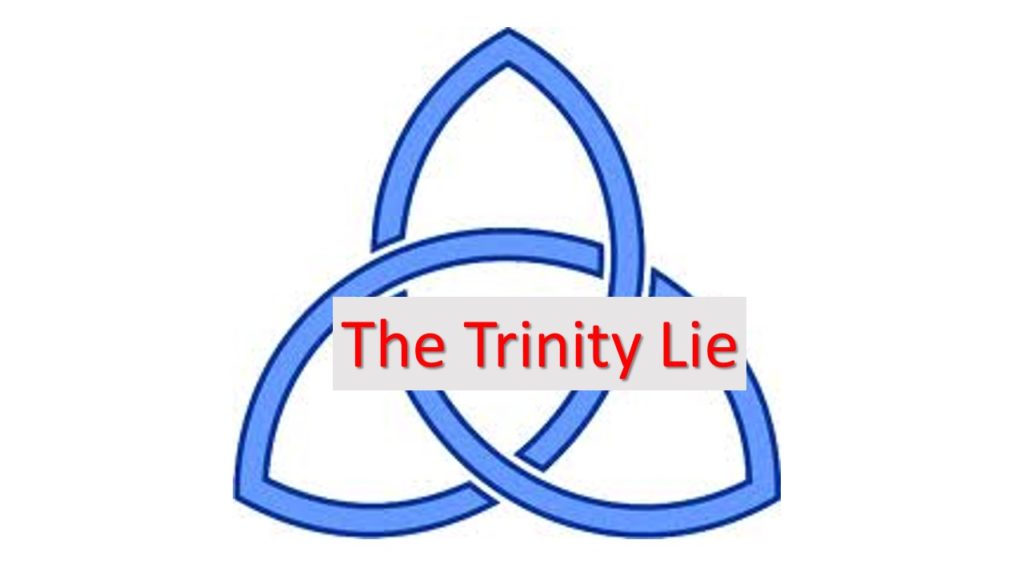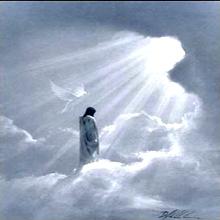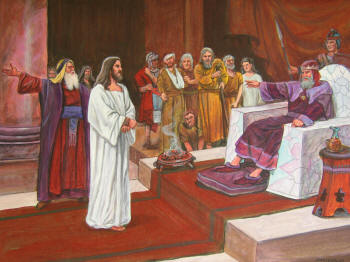Trinitarians claim that God, Jesus, and the Holy Spirit are all three equals persons within a supposed “Godhead”. But, the scriptures prove otherwise.
“Instantly, I came under the Spirit’s power. I saw a throne in heaven and someone was sitting on it”—Revelation 4:2 GWT
This verse shows us that the Holy Spirit is not a person, but God’s power, as John comes under its influence. As will be shown in this vision, God is sitting on the throne.
“In front of the throne, seven lamps [“the sevenfold Spirit”–margin] were blazing. These are the seven spirits [“the sevenfold Spirit”–margin] of God”—Revelation 4:5 NIV
The NIV marginal readings, in brackets here, are very helpful in identifying “the seven spirits” as “the sevenfold Spirit”, that is, the Holy Spirit. “Sevenfold” helps us to understand that the spirit is perfectly complete, fully equipped for its work of accomplishing God’s work. However, there is no indication of personhood.
“Around the throne, there were four living creatures . . . Day and night they never stop saying: ‘Holy, holy, holy is the Lord God Almighty . . . ‘ Whenever the four living creatures give glory, honor and thanks to him who sits on the throne . . . the twenty-four elders fall down before him who sits on the throne and worship him who lives forever and ever . . . and say: ‘You are worthy, our Lord and our God, to receive glory and honor and power, for you created all things, and by your will they were created'”—Revelation 4:6,8-11 NIV read more

 The book of Jude was written by Jesus’ half brother Jude some three decades after the start of Christianity. At this stage, we would expects to find some mention of the doctrine of the Trinity, if it is true. But, just like the rest of the scriptures, there is no mention of a Trinity in Jude.
The book of Jude was written by Jesus’ half brother Jude some three decades after the start of Christianity. At this stage, we would expects to find some mention of the doctrine of the Trinity, if it is true. But, just like the rest of the scriptures, there is no mention of a Trinity in Jude.

 Did Jesus claim to be God when he was in court, on trial for his life? Like Jesus’ enemies, Trinitarians often assert that Jesus was “claiming to be God” (
Did Jesus claim to be God when he was in court, on trial for his life? Like Jesus’ enemies, Trinitarians often assert that Jesus was “claiming to be God” (